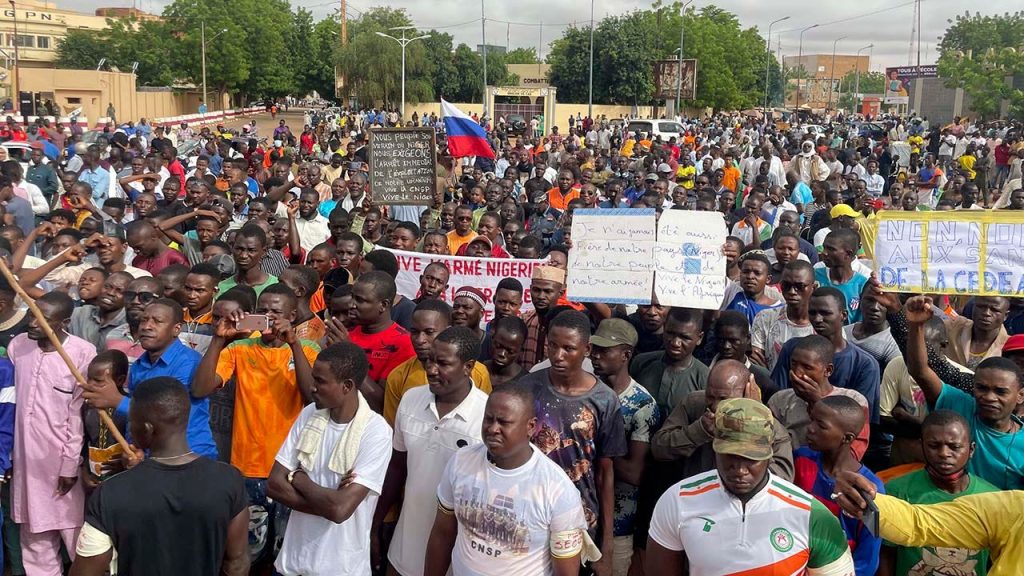The ruling junta in Niger has ordered U.S. troops to complete their withdrawal from the West African country by the middle of September, following four days of talks between defense officials from both countries in Niamey. This decision deals a blow to U.S. military operations in the Sahel region, where groups linked to al-Qaida and the Islamic State group operate. The rupture in military cooperation came after the ouster of Niger’s democratically elected president last July, leading to the ruling junta seeking security assistance from the Russian mercenary group Wagner after asking French forces to leave.
In October, the U.S. officially designated the military takeover in Niger as a coup, triggering laws that restrict the military support and aid that the U.S. can provide to the country. Approximately 1,000 U.S. troops are still in Niger, primarily stationed at an airbase near Agadez, located 550 miles away from the capital. Washington had previously considered Niger a key partner and ally in a region that has experienced multiple coups in recent years, investing millions of dollars in the Agadez base, which has been crucial for U.S. counterterrorism operations in the Sahel. Additionally, the U.S. has provided significant financial support to train Niger’s military since operations began there in 2013.
The Pentagon has stated that most of the approximately 100 U.S. forces deployed in neighboring Chad will be relocated for now. However, discussions are set to resume next month regarding a potential revision of an agreement that allows U.S. troops to be based in Chad. The decision to withdraw U.S. troops from Niger poses challenges for U.S. military operations in the Sahel region, where extremist groups continue to pose a threat. The move also reflects the evolving dynamics in the region following political unrest and changing security partnerships, including Niger’s shift towards seeking assistance from non-Western security providers like the Russian mercenary group Wagner.
The upcoming withdrawal of U.S. troops from Niger highlights the complexities of military relations in the region, as well as the challenges faced by the U.S. in navigating political transitions and security demands in countries like Chad and Niger. The decision by the ruling junta to ask American forces to leave underscores the impact of political instability on military cooperation and regional security efforts. As the Pentagon and Nigerien defense officials work towards completing the withdrawal of U.S. troops, the implications for counterterrorism operations in the Sahel region remain a key concern for both countries.
Overall, the withdrawal of U.S. troops from Niger represents a significant shift in the security landscape in West Africa and raises questions about the future of U.S. military engagement in the region. The decision by Niger’s ruling junta to remove American forces, coupled with the challenges posed by political transitions and security threats, underscores the complexities of addressing regional security concerns. As discussions continue regarding the presence of U.S. troops in neighboring Chad, the evolving dynamics in the Sahel region will likely shape the future of international security cooperation and counterterrorism efforts in the area.


